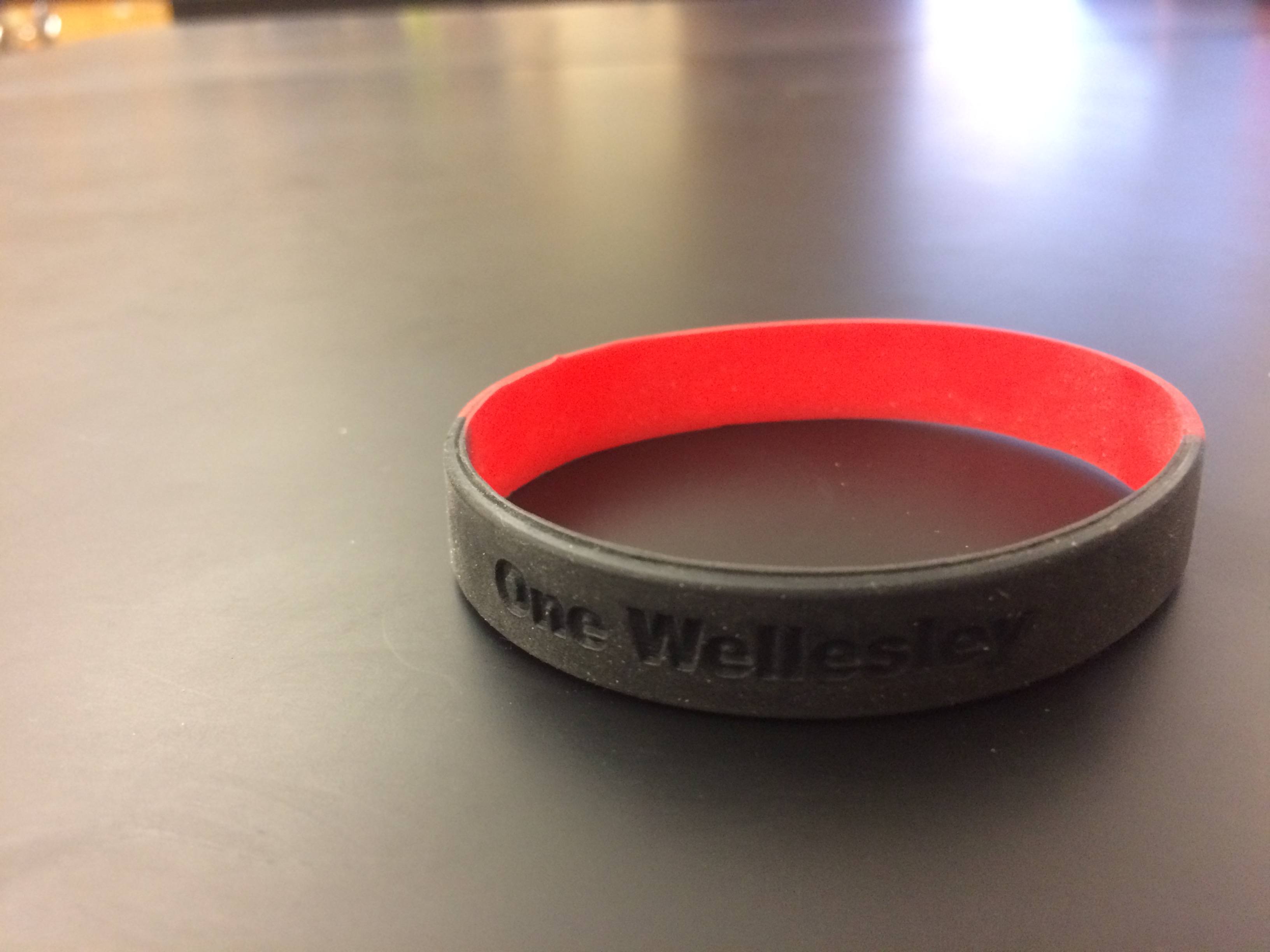A version of this article appeared on print in our November 2016 issue.
“Disappointed.” “Worried.” “Tiring.” “Frustrating.”
These were the feelings of students in the One Wellesley club whose messages were broadcast around the school after the issue of racism in Wellesley came to a head when the “n-word” was found written on a stall in the girls’ bathroom.
In reaction to the racist incident over the summer, principal Dr. Jamie Chisum started the One Wellesley Club with the help of the assistant principals, METCO coordinators Ms. Kalise Wornum and Mr. Grant Hightower, and various other community organizations to combat the racism that continues to plague the community.
Chisum, who attends every meeting, hopes the club can create a permanent forum of discussion in which students can share their experiences with racism. “We are trying to [create a mechanism] that will always be here to make sure the voices of students of color are heard,” he said. Chisum believes this is a major component in making Wellesley a more inclusive community. “I don’t want any kid to feel like they’re not a full member of this community; that’s wrong,” he said.
The club, split up into a group of about 45 students and a separate faculty group, meets every Wednesday. “There was a passionate group of teachers and a passionate group of students that needed to do work in this area,” said Chisum, explaining the logic behind having teachers involved in the club as well.
School psychologist Jordana Matz and adjustment counselor Mary Howard, leaders of the student group, help communicate between the faculty and students. In addition to communication, Matz and Howard also help students facilitate conversation, provide them with support, and help make their ideas a reality. The two teachers also recognize the importance of giving the students room to create their own plans. “I really feel like if there’s going to be a change in the student body, it really needs to come from the student body,” said Howard.
For this reason, Matz and Howard spend the first half of each meeting talking to students about opportunities to get involved outside of One Wellesley, and give students time during the second half of each meeting to discuss amongst themselves. During this time, students brainstorm how to counter racism in the short term, intermediate, and long term. Students have discussed everything from “implementing activities in advisory to adding more culturally diverse courses in the curriculum,” Howard said. The club also plans to bring in speakers to talk to students about race.
The club hopes to get involved outside of the high school community by sending its student members to a youth leadership summit run by the IDEAS (Initiatives for Developing Equity and Achievement for Students) program of EDCO (Education Collaborative) in the coming month.
In addition to confronting the issue of racism, the club brainstorms consequences for racist actions. “How do we respond and how do we react in a way that is restorative, but just and clear?” is a question some students are really focused on, Howard said.
The determination and dedication the students bring to the club have inspired both Matz and Howard. “It [is] really exciting… to see the passion and enthusiasm that many of the students have in trying to figure out how to make Wellesley a better more welcoming and safe place for everyone,” Howard said.
Perhaps the most important message the club hopes to send is the importance of community. “We are one and we are coming to work together, and to do this long term consistent work, and to support one another,” said Matz. “When people feel a part of a team, organization, or committee, it can feel safer to stand up for what they believe in.”
Emaan Tariq ’18 joined the club for just that reason: she believes it is important for individuals in the community to stand up and take action. “I joined One Wellesley to be able to make a difference in our school and community,” she said.
Like Chisum, Tariq believes the club provides a safe environment for students to have hard conversations about their experiences with race. “The club is really meant to give a chance for students’ voices to be heard,” she said. “[This] gives comfort to other students because it’s [their] peers who are bringing hope to such a difficult issue,” she said.
The positive attitude exemplified by Tariq is a key in the mindset of the club going forward, as two more racist incidents have occurred since the beginning of the school year. Chisum believes all students must be active allies in this fight against racism. He uses the phrase “stay woke” to embody this idea: “Don’t just wake up for [the incident over the summer], and then go back to sleep,” he said. “Students need to be engaged, there’s lots of educational opportunities [about racism] out there.
Chisum also wants the community to know that the work One Wellesley does will not happen overnight. “Give us time, be patient, this work is slow,” he said. “We’re headed in the right direction, but it’s going to take some time, we just have to keep beating the drum.”
Most importantly, Chisum hopes students and faculty alike remember that the name One Wellesley comes from the idea of One Love; the idea of universal love for people of all races. “There’s not a limit for how much love should be in this town, in this school, for [all] people.”

